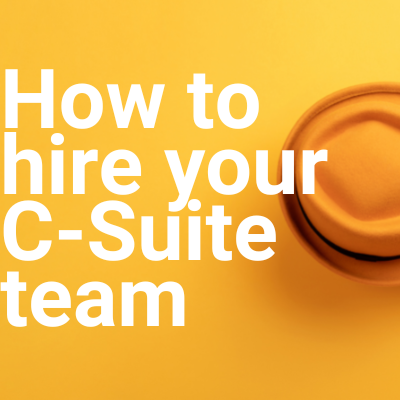Five top tips from experienced c-suite recruitment expert and MERJE co-founder Ed Manson to help you attract and secure the best senior hires for your business.
Finding the right executive professionals can make or break the future of any company and, in today’s hiring market, that is more of a challenge than ever.
With fintechs, challenger banks, start-ups, national organisations, and global firms all competing to hire the best in the business, it takes more than an attractive salary to make your offering stand out from the crowd.
In fact, a recent report from Talos360 found that while salary was the number one priority for those looking for a new role, flexible hours came in at a close second, while good business reputation, fun work culture, and benefits took the joint third spot.
So what can you do to attract the best c-level candidates? Here are my tips:
Consider the candidate journey
Before going full steam ahead with your hiring activity, be sure to consider and loosely plan your recruitment process. Think about how many and what kind of stages need to be included, and who else needs to be involved to ensure they will be available for approximate interview dates.
Disorganised and poorly planned interview processes give a negative first impression to your candidates and can leave them wondering if this experience reflects how the rest of your business is run.
Not only can this potentially put them off any current or future roles with your company, but also risks them sharing that experience with other professionals in their network who will then be less inclined to apply or interview for your vacancies.
Assess at the right level
It’s safe to say that the candidates being considered for your c-suite roles will have a considerable amount of experience in their fields which has allowed them to progress to a senior position.
Therefore, if you do wish to set a task during the interview process, it’s important to choose an assessment method and question that is reflective of the interviewees’ seniority level.
Avoid brainteasers such as “how many windows are there in New York City?” or requesting the creation of long-winded presentations (if this isn’t something they’ll be doing in the role).
Case studies are a great option, firstly because they can present a realistic situation which allows the candidates to demonstrate their abilities which are relevant to the role, and also because they open the floor for further and more in-depth questions which wouldn’t necessarily come up during standard Q&A or written/online tests.
Network
These days, networking is a powerful tool for many different things, and recruitment is certainly one of them. This is evidenced by the fact that so far this year, over 40% of our senior placements (roles with salaries ⥠£100k pa) were candidates from LinkedIn.
In today’s market, it’s not enough to just advertise your roles and hope that the right person will apply because potential future hires are no longer just those actively applying for positions. Your next COO, Legal Counsel, or Chief Executive could be hiding in plain sight on your LinkedIn feed; liking your posts, having conversations in the comments, and following the same hashtags as you.
Hiring managers and internal talent professionals who aren’t active on LinkedIn are missing out on a huge portion of the candidate market. You never know what a “hello, thanks for the connection” message could turn into!
Hire with diversity in mind
There is now plenty of research and evidence to show why creating a diverse workforce is beneficial for your business. And it’s not just about ticking a few different gender or ethnic origin boxes. The fact is, the broader the repertoire of perspectives, personalities, and skills in a team, the more successful they prove to be.
Your c-suite team undoubtedly requires a harmonious set of values as you work together towards the same strategic goals, but that is where your list of essential requirements should end.
Looking for skills, strengths, personalities, experiences, career histories, academic records, and backgrounds which are not identical but varied and complementary to each other will better set your senior leadership team up for success.
Devote the necessary time
Getting your c-level hires right is critical to business success. After all, it’s these individuals who will set the strategic direction, ethos, and culture of the business, which then trickles down into every area of the company.
That’s why hiring at the senior level inevitably requires more time devoted to it as you conduct a rigorous interview process to ensure you choose the right person. This additional time can be a challenge to fit into any busy hiring manager’s schedule, particularly in start-ups and SMEs when smaller teams mean individuals have more responsibilities to juggle.
In cases where you cannot devote the necessary time to advertising vacancies, searching for candidates, and pre-screening and shortlisting individuals, the best course of action is to engage with a specialist recruitment partner which can do that on your behalf.
For example, our Executive Talent solution can be adapted to any business, and our decades of experience in the financial services industry means we are best placed to support senior hiring needs.
We have extensive networks of c-level professionals across our areas of expertise, including Risk, Compliance, Finance, Operations, Analytics and more.
If you’d like to discuss your c-suite recruitment strategies and how we can support you in achieving success, get in touch.
Overcoming Recruitment Challenges
Want more tips to help you battle hiring difficulties like struggling to find suitable candidates or being beaten by counter-offers? See our Overcoming Recruitment Challenges series:
Introduction: Why is hiring so tough right now?







